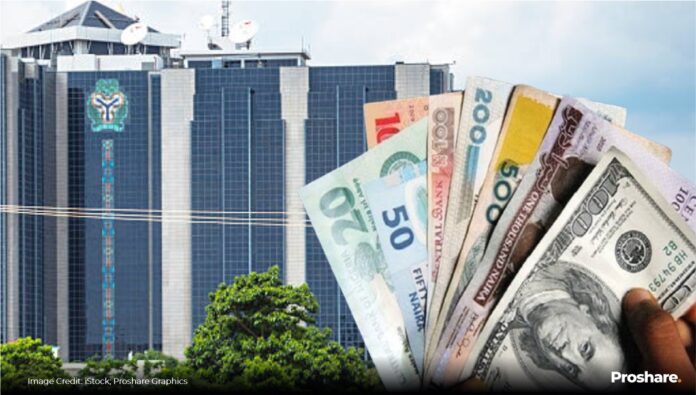BY SAM OTUONYE
Nigeria’s external reserves witnessed a rise by $2.2 billion according to the Central Bank of Nigeria (CBN) 2024 financial results, indicating an improvement in the nation’s external reserves from $36.6 billion in 2023 to $38.8 billion in 2024.
According to the CBN, this increase is largely due to enhanced accretion to external reserves from portfolio investors, diaspora remittances, and Federal Government receipts, following improved confidence in the economy facilitated by better coordination with the Nigerian National Petroleum Company (NNPC) and diaspora engagement strategies, alongside effective investment management decisions.
The CBN stated that the performance demonstrates its firm commitment to external sector stability, positioning Nigeria to better meet its international obligations, stabilize the Naira, and boost macroeconomic confidence.
The bank’s bottom line also showed significant improvement, moving from a deficit of N1.3 trillion in 2023 to a surplus of N165 billion in 2024. The CBN attributed the turnaround to effective expenditure containment, gains on investments, and increased income from foreign exchange transactions.
The financial statements further revealed a notable reduction in loans and receivables from N16.1 trillion to N11.9 trillion.
The CBN explained that this is primarily due to significant recoveries from earlier intervention lending programs and a deliberate policy shift away from intervention lending and monetary financing through ways and means, aligning with the bank’s new stance on allowing market mechanisms to drive credit allocation and financial sector development.
Operating expenses in 2024 were managed and optimised through strategic cost rationalization initiatives, including a reduction in non-essential spending and streamlined operations across regional branches and departments, reflecting a cost-conscious culture within the bank.
The CBN also noted the timely and successful adoption of Internal Control over Financial Reporting (ICFR), in line with the Financial Reporting Council (FRC) regulatory requirement.
The bank said that an assessment of its internal controls was carried out and certified effective by the joint external audit team, enhancing transparency and accountability in financial reporting, strengthening institutional governance and internal risk controls, and aligning with international best practices in central bank operations.
The joint external auditors issued an independent assurance report declaring the Bank’s ICFR framework to be “effective” for the 2024 reporting period.
However, the CBN’s expenses related to liquidity management operations saw a notable increase, rising to N4.5 trillion in 2024 from N1.5 trillion in 2023.
The bank explained that the increase was in tandem with the tightening monetary policy stance adopted to combat inflationary pressures throughout the year, leading to more frequent and higher-value Open Market Operations (OMO) to manage excess liquidity.
The CBN noted that these costs are incurred on behalf of the Federation and are borne by the Government in some jurisdictions.
Additionally, the financial statements reflected an increase in the loss on settled derivative contracts from N6.3 trillion in 2023 to N13.9 trillion in 2024.
The CBN clarified that this was a direct consequence of the high volume of derivative contracts settled in 2024, legacy transactions met by the current management upon resumption of office. This proactive settlement effort was part of a broader strategy to reduce outstanding foreign exchange liabilities, lower FX exposure, boost net foreign reserves, improve Nigeria’s external buffer and investor confidence, restore credibility to Nigeria’s forward markets, and address legacy obligations transparently.
The CBN added that the improved performance in 2024 was a result of deliberate and strategic management efforts, including reinforced governance and accountability, the instilling of operational discipline, and the pursuit of a balanced monetary policy stance to ensure price and financial system stability.
The bank stated that these reforms have collectively repositioned the CBN as a credible monetary authority, with the 2024 financial results serving as evidence of its resolve to support economic recovery, safeguard financial stability, and build public trust.

